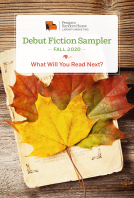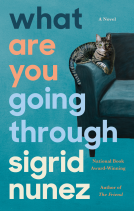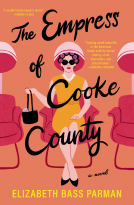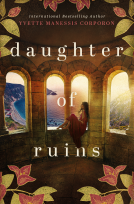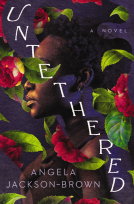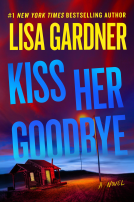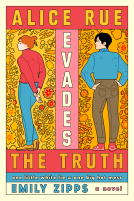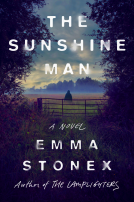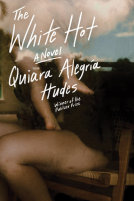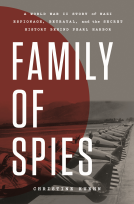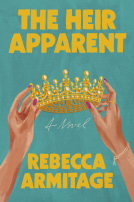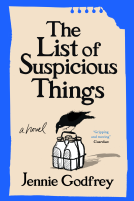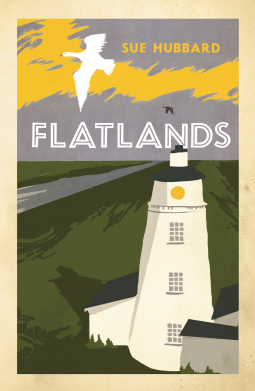
Flatlands
by Sue Hubbard
This title was previously available on NetGalley and is now archived.
Send NetGalley books directly to your Kindle or Kindle app
1
To read on a Kindle or Kindle app, please add kindle@netgalley.com as an approved email address to receive files in your Amazon account. Click here for step-by-step instructions.
2
Also find your Kindle email address within your Amazon account, and enter it here.
Pub Date Jun 13 2023 | Archive Date Jun 01 2023
Talking about this book? Use #Flatlands #NetGalley. More hashtag tips!
Description
Perfect for fans of Atonement, this gorgeous coming of age explores the connection between Philip, a conscientious objector, and Freda, a young London evacuee housed by a cruel family
Freda is a twelve-year-old evacuee from East London, who has been sent away at the start of the war, leaving behind everything familiar to her, to escape the expected German bombing.
In her new temporary home in Lincolnshire, Freda finds herself billeted with a strange, cold and, ultimately, abusive couple, whose lives mirror the barren landscape in which they live a hand to mouth existence, based upon subsistence farming and poaching. There, deprived of any warmth, she meets a young man - Philip Rhayader -a conscientious objector who has left Oxford and his prospective vocation in the church following a nervous breakdown.
Together they explore the wild, beautiful landscape of the Wash, teeming with migrating birds, and nurse an injured goose back to health. As they do so, Philip introduces Freda to the wonders of the natural world and its enduring power to heal.
Advance Praise
“Vivid... successfully evokes the aching beauty of the bleak, watery landscape alive with bird life… A wartime parable of friendship and connection.”
--Kirkus Reviews
"Beautifully-written, and highly evocative of the remote Lincolnshire landscape, the Second World War and the two people whose loneliness brings them together for a life-changing time... Altogether a fine period novel, full of quiet drama and sorrow at loss, cruelty and mortality."
--Amanda Craig, author of The Golden Rule
"Compelling and beautifully intimate. A classic piece of storytelling."
--Toby Litt
'A haunting and lyrical novel about loneliness and the compensations of the natural world, art and unlikely friendships. The characters of an unhappy evacuee from the East End and a conscientious objector will draw you in as they search for some kind of peace in the wide open landscapes of the fens and the story moves them to their own inevitable crises."
--Maggie Brookes, author of The Prisoner’s Wife
Available Editions
| EDITION | Other Format |
| ISBN | 9781911590842 |
| PRICE | $16.95 (USD) |
| PAGES | 272 |
Available on NetGalley
Average rating from 25 members
Featured Reviews
It had all been so short and what had it been for? What difference had he made?
from Flatlands by Sue Hubbard
What do we leave behind after we are gone? Are we like the ripple when we throw a stone into still water–a quick disturbance that flashes into nothingness?
Say you are a young man with strong ideals, someone who never fit in. And you discover peace and serenity living close to nature. Say you befriend a girl who is separated from her mother, unprotected and mistreated. Say you show her things she never knew–poetry and art and how to care for the wounded. Say you do one courageous thing, and it brings death. Was your life without meaning?
We all stand on the brink, he thought, with our toes hanging off the edge of the world.
from Flatlands by Sue Hubbard
At eighty-seven years old, Freda marvels at how old age crept up on her. “Wrinkles have a way of making you disappear one line at a time,” she thinks, but she is the same, her heart is the same. To make sense of her life, she sorts through the ephemera that are “tangible evidence of what really happened.” As a girl, Freda was evacuated from London during WWII. She was small and plain and unclaimed until taken by a poor family, a family that worked hard just to survive, a family without the luxury of love.
Freda worked at the worst jobs, endured cold and hunger, and finally abuse. Then, she met Phillip. He lived at the abandoned lighthouse, spent his days in manual labor and his evenings making art and reading, listening to his gramophone records. Philip showed Freda concern and care, and taught her about the world, art and poetry. He had been at university, talked theology with the Inklings, loved two beautiful people, a brother and a sister. But he had no faith, was a broken man, and hated the violence of war. A conscientious objector, here along the flat lands of the fens, working on the land with his hands, he had discovered peace.
The writing is stunning, twisting my heart so many times in its words. The marshlands beautifully described, the character’s inner lives flayed open with great sensitivity. The novel asks the great questions of life, and it affirms the healing power of nature and art–and love.
I was surprised to read that the novel is a retelling of Paul Gallico’s children’s story The Snow Goose; I remember reading it and many other novels by him when I was a teenager, fifty-some years ago. And that Gallico was inspired by a real person and place.
This is a real gem of a novel.
Thanks to the publisher for a free book.
 Cheri S, Reviewer
Cheri S, Reviewer
’I was twelve when I was sent to that cold place. I could never have dreamt that anywhere so lonely existed. In my mind’s eye it was always cold, though I arrived in September. A hot day, the sort of day for picnic not a war. From the stuffy train we could see gangs of women in the fields dressed in old sun bonnets and aprons, weeding rows of potatoes and stacking bundles of hay.’
’But still, what stays with me are the winter flurries of sleet over the tidal estuaries. The whalebone coloured skies and frozen tidal creeks. The eerie honking of wintering geese as they lifted their strong muscled necks and angel wings in the mist above the reed beds and frosted fields. Hands and toes chapped raw with chilblains. No, after Bethnal Green with its crabbed back-to-backs, its soot-blackened tenements, bustling markets and noisy pubs, I could never have dreamt that such a place existed.’
’Now I’m old. My life mostly behind me. I don’t expect anything else much to happen. I live each day as best I can. Try to be positive, despite the sciatica. Inside, I’m the same person I’ve always been. That’s the thing. The heart remains unchanged. It’s just the body that ages. But the longing remains. The longing for those moments all those years ago in that place where sea and sky met.’
In 1939, as the war is unfolding, children are being evacuated from the cities to areas which the enemy is less likely to target. Freda ends up in the Fens with Mr. and Mrs. Willock, where Freda is expected to care for their son, work for what little food she is given, and to be subjected to Mr. Willock’s desires.
Not long after she arrives in the Fens, she finds a goose whose one wing appears to be hanging at a strange angle, she reaches out to touch it, but the goose hisses at her, but she knows she can’t just leave it there, and so she heads to the lighthouse to see if she can get help. When she knocks, she tells the man about the goose, and he follows her to where the goose is. As they talk about the prospects of the goose’s recovery, a bond begins to form.
A bond is formed between these two, as a conscientious objector he is considered somewhat of an outsider, someone who doesn’t really fit in with his family, or with a country at war, and she is definitively an outsider, a child far from home.
This is a breathtaking, quietly lovely story of the impact of war, the lifelong memories shared of a brief moment in time, and the bond of friendship. This is one that I won’t forget.
Pub Date: 13 Jun 2023
Many thanks for the ARC provided by Pushkin Press
 Evonne B, Reviewer
Evonne B, Reviewer
This is a beautifully written novel of two young people thrown together by war and nature and sadness. A young girl uprooted from her London home, a young man adrift due to his pacifism and longing for an emotional home. The last pages included some of the best writing I've ever read. This was not an easy book, but a stunning and important one. Perfect for historical fiction lovers and those who want to learn about the hardships at home during WWII.
A beautiful novel set in the time of war with an atmospheric feel. It is about a girl Freda and her life written in a nostalgic fashion in her old age. Very immersive and engaging with beautiful writing. Reminded me of 'All the Light We Cannot See' by Anthony Doerr. Definitely recommended!
 Beverley C, Educator
Beverley C, Educator
A stunning reimagining of the Snow Goose. This is a very special read, one that leaves a lasting impression - as powerful as the original, yet very much stand alone. Thoroughly recommend.
4 1/2 haunting stars.
A moving tale of unlikely friendship and the beauty of nature, set in the wild wetland landscape of the English Fens during World War II
Perfect for fans of Atonement , this gorgeous coming of age explores the connection between Philip, a conscientious objector, and Freda, a young London evacuee housed by a cruel family.
Freda is a twelve-year-old evacuee from East London, who has been sent away at the start of the war, leaving behind everything familiar to her, to escape the expected German bombing.
In her new temporary home in Lincolnshire, Freda finds herself billeted with a strange, cold and, ultimately, abusive couple, whose lives mirror the barren landscape in which they live a hand to mouth existence, based upon subsistence farming and poaching. There, deprived of any warmth, she meets a young man - Philip Rhayader -a conscientious objector who has left Oxford and his prospective vocation in the church following a nervous breakdown.
Together they explore the wild, beautiful landscape of the Wash, teeming with migrating birds, and nurse an injured goose back to health. As they do so, Philip introduces Freda to the wonders of the natural world and its enduring power to heal.
- - - - -
I just finished reading this, and think I will be processing/ recovering from it for awhile. Haunting, atmospheric, it feels like it captures the mood perfectly, what it must have felt like to exist in such chaotic times. The friendship between Freda and Philip, the natural world, and art and music were the little escapes/ points of life in the darkness of the story and the world within it.
* I received an ARC of this book from NetGalley in exchange for an honest review.
 Mary Anne Q, Librarian
Mary Anne Q, Librarian
Taking place in the early months of WW2, Flatlands is the story of two unlikely friends, thrown together through the vagaries of war.
Freda is 12 years old, living in London. She is sent away from home during the evacuation of children, with the idea that they will be safer in the country. Freda is sent to live with a poor couple and treated like a slave. Her mother doesn’t seem interested in her plight, and although Freda is terribly homesick, her mother seems too busy with her London life to care.
Phillip is 23 or 24, trying to find his way in life. He is educated, and originally was on the way to becoming a clergyman. Educated and cultured, he is a conscientious objector, and takes up residence in an abandoned lighthouse to stay away from people. Conscientous objectors are not popular and he struggles to fill his time with constructive and educational activities.
When Freda and Philip meet they find common ground in studying the natural world, the shore birds, the tide, and the stars.
This is a quiet story, that takes a deep dive into the lives of two lonely people, who are caught up in something bigger. Well written and engaging, well worth reading!
 Paromjit H, Reviewer
Paromjit H, Reviewer
This is a beautifully poignant retelling by Sue Hubbard of Paul Gallico's The Snow Goose, a parable of the saving grace and regenerative power of love and friendship, exploring the fundamental questions of life, amidst the backdrop of the horrors of WW2. A vulnerable and fragile 12 year old Freda leaves her mother and beloved Nan in Bethnal Green, London, as part of Operation Pied Paper, sending children to rural 'safety' to live with strangers. She arrives in the Fens,the harsh bleak flatlands of great natural beauty and wilderness, bitterly cold, windy, and desolate, and taken in by the impoverished Willocks into their dilapidated broken down home. They proceed to exploit her, making her work and look after their toddler, barely feeding her, often keeping her from school, with poacher Stan Willock going on to sexually abuse her.
In a novel that goes back and forth in time, 87 year old retired librarian Freda (Frith) lives in a care home amidst her mementoes and desperate to write down her memories of living in the Fens during the war in her journal as the Dunkirk anniversary approaches. When young Freda comes across a wounded rare albino pink foot goose, she goes to the abandoned lighthouse where Philip Rhayader lives, and the pair of them care for it until it heals. Philip is a lonely, anxious, and conflicted man with his own demons, a conscientious objector, who has lost his faith, experienced mental health, emotional and sexual identity issues, and finding solace in nature, painting, and hard work. The only sanctuary Freda finds in the Fens is at the lighthouse as she becomes 'Frith'. It is Philip who teaches and educates her about birds, the arts, poetry, culture and more, a pivotal time of change that will open up opportunities that would otherwise never have been open to her.
Philip and Freda recognise and each fill a need in each other. The wounded snow goose is a metaphor, symbolising Philip, Freda, along with a world experiencing the unspeakable misery and despair of war, it speaks of the shoots of light, hope, and possibilities under the darkest and most soul destroying of times. This is an extraordinary, emotionally sensitive and most unforgettable of reads, the terrors of Dunkirk, a remarkable retelling of The Snow Goose with a marvellously atmospheric sense of location, that I am certain will be loved by a wide range of readers. Hugely recommended. Many thanks to the publisher for an ARC.
Flatlands is an engrossing, slow, tender, raw and heartachingly beautiful story about hardship, friendship and the intense relation to and magnetism of nature. As I sit and type this, my mind is trying to find adjectives which encapsulate my feelings on the magnificent writing and storytelling. It is evocative and thoughtful, sometimes crushing and always lovely. My heart finds indescribable serenity in nature and felt completely at home in the descriptions in this book.
During WWII in England, Freda became an evacuee and billets in Lincolnshire where bombs may potentially fall. As she waited for that to happen literally and figuratively, she met Philip, ten years older and a broken man who connected deeply to nature and to the land. Though very different in age and stage, they become fast friends who learn from each other. They are both suffering, Freda with her cold and cruel billet and Philip with his own demons which contribute to his being a conscientious objector, a difficult position to be in during war. An injured goose (oh, the parallels!) becomes a balm on so many levels. Then a poacher enters the scene which adds another layer.
Years later, at eighty seven, Freda reflects on her past and understands the reasoning for her billet's treatment of her and other life experiences. Her introspection is one of my favourite aspects of the book as it is written with such wisdom. I'm sure in ways we can all see slivers of her and/or her thoughts in us. As a nature lover myself, Philip's love and respect for the land is very understandable.
This book has wide appeal from General Fiction to Women's Fiction, Literary Fiction to Nature writing. If you seek a soothing and gentle yet not always pretty story with vivid narrative and wonderful characterization, this is precisely for you. Let yourself go completely and get enveloped in it.
My sincere thank you to Pushkin Press and NetGalley for providing me with an early digital copy of this enchanting novel.
 Kasia K, Educator
Kasia K, Educator
Nostalgic, melancholic prose with a poetic touch. This one should be read and enjoyed while sitting in a garden, under trees, listening to birds Not in a metro, bus, or in a dentist waiting room.
A World War II novel family rooted in the countryside of East Anglia around Kings, Lynn and Wisbech, this story tales of a young girl, evacuated from wartime London to the countryside.
The novel focuses on the young girl and her relationships with the family that Ihave her to stay and with a young man who is a conscientious objector and is working on the land nearby.
The story is told by means of flashbacks and present time stories, told by the narrator as she becomes elderly and lives in an old peoples home. The poignancy of being elderly without family contrasts with her life without her parents during her evacuation.
My one criticism of the novel is that there are frequent, Sudden time jumps which make the story fragmented and difficult to settle down to read. The author has chosen not to make these time, jumps clear by labelling chapters for example, and they came as a surprise to me.
The author characters so well that they seem like real people, I feel I’ve met some of them before.
By telling us of the small lives of her characters, in the middle of the hugeness that was the war the author really brings home the effects of war time life on normal people.
In addition to the stories of people in the countryside, there is one particular scene setting in Dunkirk where the small boats are evacuating the retreating soldiers, which is highly visual and contrasts, with the domesticity of much of the rest of the story.
Published in the UK on the 13th of June 2023 by Pushkin press
This review will appear on Goodreads, NetGalley, UK, and my book blog, bionicSarahsbooks.wordpress.com
A celebration of two people’s steadfastness
Philip and Freda are outsiders, one by his choice of pacifism and the other by her circumstances, who struggle to survive as WW2 breaks out in Europe.
Philip is a young man conflicted with anxieties and doubts about his relationships with Jess and her brother Peter. He struggles with making his way in the world, flunks his finals at Keble College, becomes a conscientious objector and withdraws to a disused lighthouse to endeavour to scratch a living as a farm labourer. Here he discovers ‘only two things mattered. The natural world and painting’.
Freda is a child of a family running a hardware shop in the East End of London. She is evacuated out to a family whose lives are ‘nasty, poor and brutish’ in the desolate flatlands of south Lincolnshire. Here she is neglected and faces dreadful hardship.
Freda visits Philip in the lighthouse and these two lost souls find companionship and discover a shared project – that of caring for a wounded albino goose.
But this friendship is broken when Philip overcomes his pacifist objections, steals a small boat and sails to assist the evacuation from Dunkirk.
There are two narrative voices. The first is the interior monologue of Freda as an old woman whom we gradually learn is in a care home. She is revisiting scenes from her life on a day when the residents are due to gather to watch the TV coverage of the 75th anniversary of the evacuation from Dunkirk. The second is an unnamed narrator. Plot is less important in this novel as it moves slowly between Freda’s memories as captured in the journal she has been writing. The unnamed narrator recounts scenes from Philip’s early life at home and at college. There are no distinct chapters. Instead the novel unfolds in a series of scenes which cut back and forth across the years.
This is a slow-moving novel which allows it the time to dwell on period details. The research is very well done with every page bringing evocative insights into the 1930s and early 1940s. This is a great achievement as it is skilfully woven into the narratives.
The first half of the novel is exposition with dramatic events beginning to gather pace only in the second half. But having spent so much on the exposition, I wanted to know much more of Freda’s life from surviving the stress and squalor of being an unwanted evacuee to her life in a care home 75 years later. We can surmise Philip’s fate but not to offer any glimpse as to Freda’s life seems frustrating and unsatisfying. Did she make a transition from her sad lonely life as an evacuee to one that was warmer and more fulfilling?
This is a sad tale set in the middle of the 20th Century that’s distanced now so as to be a historical novel. It’s not a happy tale but it does celebrate the steadfastness of two people who struggle against grim situations to find a fulfilment of sorts.
 kATHLEEN G, Reviewer
kATHLEEN G, Reviewer
A quiet powerful novel about two people-young Freda and Philip-who find themselves without a place of comfort during WWII and then find each other. She's been sent away for her safety but the people who are housing her are cruel. He's a conscientious objector. They bond over a goose, with Phillip teaching Freda about nature and life writ large, The language is gorgeous. Thanks to Netgalley for the ARC. Excellent read.
 Book Trade Professional 1025471
Book Trade Professional 1025471
This quiet and beautiful yet thoroughly involving book will stay with me for a long time. 'Flatlands' reminds me a little of the novels of Helen Humphreys but her voice is less poetic and more ordinary. Ordinary in the way it so well captures everyday lives and emotions that we can recognize but that still have depth and power. Both the characters in this book--the young girl separated by war from her family and the young man who tries to hold to his pacifist believes--are thoroughly believable and their external and internal struggles make a fine parallel set of stories that come together. The appreciation of nature and its close observation matches the intimate tone of the novel as a whole. For me, the only thing that worked less well was the dramatic ending involving a famous moment in the war. It wasn't as well portrayed and it seemed something more subtle would have worked better--for me, anyway. But I would press this book on anyone.
 AliceMaud M, Reviewer
AliceMaud M, Reviewer
This is an engrossing, captivating, and brilliant novel in which Freda, an elderly woman living in a care home, looks back on her life, concentrating mainly on the 1940s War years when she was evacuated as a child from London’s East End to the depths of rural, coastal Lincolnshire. In beautiful, almost lyrical, prose the author has created some unforgettable characters, not least the landscape itself, all of whom influenced the course of Freda’s life.
I understand that the book is loosely based on “The Snow Goose” by Paul Gallico which I failed to understand when I read it as a child, and which now seems perfectly clear to me, thanks to “Flatlands”.
 Maggie R, Educator
Maggie R, Educator
An old woman looks back on a time when her life was changed by a young man she met while an evacuee from London during WWII. Freda was small and plain and unclaimed until taken by a poor family, a family that worked hard just to survive, a family without the luxury of love. She worked at the worst jobs, endured cold and hunger, and finally abuse. But all that was bearable once she met Phillip. He lived at the abandoned lighthouse, spent his days in manual labor and his evenings making art and reading, listening to his gramophone records. Philip showed Freda concern and care, and taught her about the world, art and poetry. A retelling of Paul Gallico's The Snow Goose, Flatlands will appeal to the same audience that treasured that book when they were young..
 Susan D, Reviewer
Susan D, Reviewer
Flatlands is the story of two people who are lifted out of their normal lives and find themselves on the bleak, flat Fens of the northern coast of England as the country girds itself for war with Germany in 1939. Twelve years old Freda is an evacuee from London sent away for fear of what might be coming soon to the capital. Her luck of the draw is a cold, sometimes cruel, family who see her not as a child but as a house worker and stipend. Phillip has failed as an Oxford divinity student and had a nervous breakdown. He is a conscientious objector to the war and has chosen the Fens for its solitude, its natural environment, especially birds, and an opportunity to attend to his loves of nature and painting.
Freda and Phillip meet accidentally after the wounding of one of the marshland’s many geese. They share a quiet, but beautiful, friendship as each answers some unspoken need in the other. We hear this novel from both points of view.
This is a lovely study of two lonely, struggling people, of life in a lonely but ruggedly beautiful place that offers glimpses of that beauty to those who seek it and are open to it. It’s also a beautifully written book.
Recommended
Thanks to Pushkin Press and NetGalley for the opportunity to read this book. This review is my own.
 Reviewer 1050497
Reviewer 1050497
Absolutely moving, emotional prose. Such an important, interesting and considered plot. The protagonists, in particular Freda, were well written and believable,
 Kate W, Reviewer
Kate W, Reviewer
An enjoyable read, well written and entertaining. Hadn't read this author before but would consider reading again.
This quiet, beautiful book is a new retelling of the classic novella The Snow Goose by the American author Paul Gallico. Here the action moves from Essex to the sprawling wilderness of the Fens around Kings Lynn, and jumps in time between 87-year old Freda, now in her London care home, and reminiscences of her 12-year-old self, evacuated to Lincolnshire during the Second World War. Young Freda is last to be picked and finds herself living with a grim-faced and abusive farming family, eking out a bleak existence on what seems like the edge of the world. Friendless, loveless and deeply hurt, she stumbles into an abandoned lighthouse which has become home to 27-year old Phillip, a conscientious objector consumed by the horrors of war, who’s abandoned his studies at Oxford to seek agricultural labour while he explores his love of painting. The two outcasts find a unique sort of sibling-like kinship in one another: together they care for an injured goose and slowly learn how to trust each other and the world, discovering the therapeutic power of art and seeking solace in nature’s riches – but how long can they keep the real world at bay? Flatlands has a superb sense of place and will be deeply evocative for those who adore our local landscape: passages of beautifully descriptive nature writing will transport you straight to the wild marshes of the Fens, no matter where you are when reading.
featured in the August 2023 issue of Cambridge Edition magazine
It's tragic how timely the message of this book is right now. The story is set in 1939-40 but couldn't be more relevant today.
"I believe that killing people is wrong. It solves nothing. War is a failure of imagination. An act of the petty-minded. We live in an advanced industrial society yet have hardly developed emotionally since we lived in caves. Peace and love, Frith, are skills. A choice. Not just feelings."
Two young people affected by the war, meet and change each others lives for good. This is a sensitive little book packed with great thoughts and humane feelings.
Many thanks to NetGalley and Pushkin Press for an Advance Review Copy.
 Anne G, Reviewer
Anne G, Reviewer
What is the purpose of our one life? Is it possible to make a difference in the short time we are allotted on this earth? Are we connected to each other in any way? These are the important questions the author puts forward in this quiet and beautiful but sad book.
Freda is a twelve year old girl from the poor, working class area of London called Bethnal Green. Her and her classmates are evacuated at the start of the Second World War to a small village adjacent to the Wash, a large shallow tidal bay in the Fens of eastern England. It is a poor and isolated area, extremely flat because it was reclaimed from marshland several centuries ago. Freda ends up in one of the poorest and most isolated homes. Here she is used as a drudge, with no kindness or even civility shown her. She is horribly lonely and homesick. By chance she happens to meet Philip, a young Oxford student who treats Freda with kindness. Philip has chosen his isolation for various reasons. He is horrified by the thought of the senseless killing that will ensue from the declaration of war. His father was killed in the First World War, so Philip is determined to be a conscientious objector to this new war. Philip shows Freda friendship, helps her rescue a wounded goose and also introduces her to the arts, showing her that there is beauty in the world. When Mr. Willock (Freda’s “host”) attacks her sexually, she flees to the lighthouse where Philip was living - but, unknown to everyone, Philip has left to assist in the chaotic Dunkirk retreat. Ms. Hubbard describes in detail the murderous rout that occurred as the defeated English and French troops fled from the advancing German forces. The horror, blood and rampant death are impossible to imagine. Philip felt that this was a way he could help in the war effort without having to lift a gun and kill the enemy.
These events have been told to us by Freda, who is now in her eighties and living in a retirement home. She is writing her memories of the wartime years as the seventy-fifth anniversary of Dunkirk approaches. After the war she became a librarian with a love for books and poetry. She still remembers Philip and his gifts of kindness and the love of learning. Her life would have been very different if she had never met him, and she certainly will have passed these gifts on to the young patrons of her library.
The book is quiet, cold and sad from the most part, but in spite of this, it is a compelling and beautiful read. I found it so moving that as soon as I finished reading it once, I picked it up and read it again in a more thoughtful and contemplative manner. And I hardly ever re-read. The story is serious and gritty, so mature readers would be a suitable audience, particularly those who enjoy historical fiction. It is not a “happy” book overall, but I found it well worth my time. It really touched me and is still swirling in my mind.
Thank you to NetGalley and Pushkin Press for providing the e-ARC in return for my honest opinion.
CONTENT WARNINGS
This is a book about war and there are descriptions of war, injury and death. There is also a scene of sexual abuse and one under-age rape (although not described in detail).
Readers who liked this book also liked:
Yvette Manessis Corporon
General Fiction (Adult), Historical Fiction, Women's Fiction
